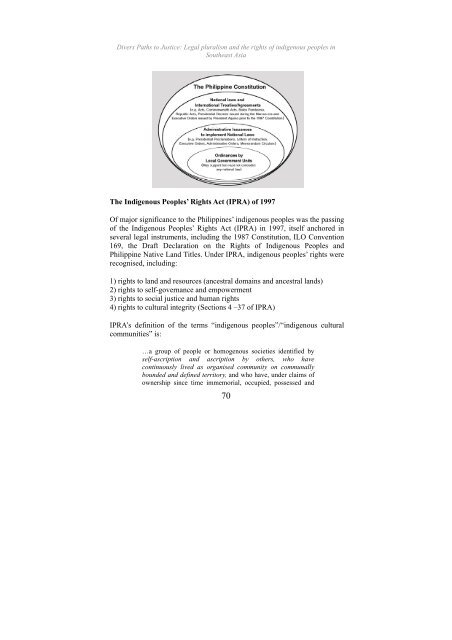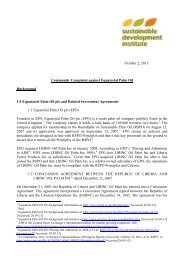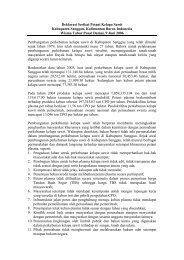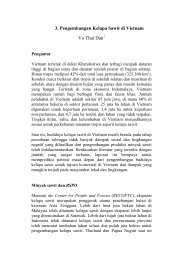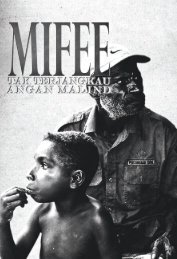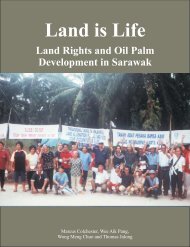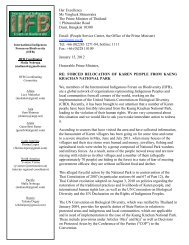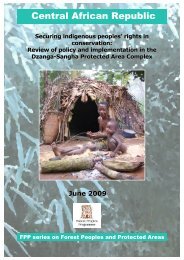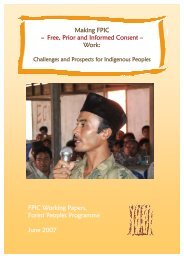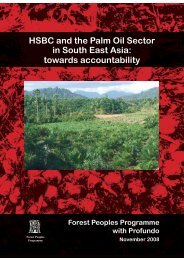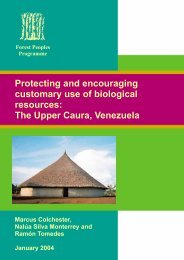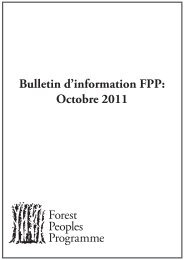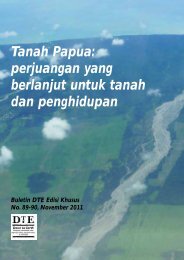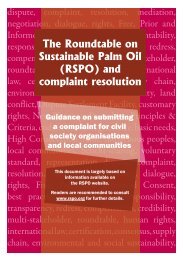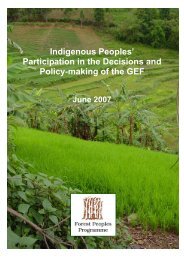- Page 2 and 3:
Divers Paths to Justice: Legal plur
- Page 4 and 5:
Divers Paths to Justice: Legal plur
- Page 6 and 7:
Divers Paths to Justice: Legal plur
- Page 8 and 9:
Divers Paths to Justice: Legal plur
- Page 10 and 11:
Divers Paths to Justice: Legal plur
- Page 12 and 13:
Divers Paths to Justice: Legal plur
- Page 14 and 15:
Divers Paths to Justice: Legal plur
- Page 16 and 17:
Divers Paths to Justice: Legal plur
- Page 18 and 19:
Divers Paths to Justice: Legal plur
- Page 20: Divers Paths to Justice: Legal plur
- Page 23 and 24: Divers Paths to Justice: Legal plur
- Page 25 and 26: Divers Paths to Justice: Legal plur
- Page 27 and 28: Divers Paths to Justice: Legal plur
- Page 29 and 30: Divers Paths to Justice: Legal plur
- Page 31 and 32: Divers Paths to Justice: Legal plur
- Page 33 and 34: Divers Paths to Justice: Legal plur
- Page 35 and 36: Divers Paths to Justice: Legal plur
- Page 37 and 38: Divers Paths to Justice: Legal plur
- Page 39 and 40: Divers Paths to Justice: Legal plur
- Page 41 and 42: Divers Paths to Justice: Legal plur
- Page 43 and 44: Divers Paths to Justice: Legal plur
- Page 45 and 46: Divers Paths to Justice: Legal plur
- Page 47 and 48: Divers Paths to Justice: Legal plur
- Page 49 and 50: Divers Paths to Justice: Legal plur
- Page 51 and 52: Divers Paths to Justice: Legal plur
- Page 53 and 54: Divers Paths to Justice: Legal plur
- Page 55 and 56: Divers Paths to Justice: Legal plur
- Page 57 and 58: Divers Paths to Justice: Legal plur
- Page 59 and 60: Divers Paths to Justice: Legal plur
- Page 61 and 62: Divers Paths to Justice: Legal plur
- Page 63 and 64: Divers Paths to Justice: Legal plur
- Page 65 and 66: Divers Paths to Justice: Legal plur
- Page 67 and 68: Divers Paths to Justice: Legal plur
- Page 69: Divers Paths to Justice: Legal plur
- Page 73 and 74: Divers Paths to Justice: Legal plur
- Page 75 and 76: Divers Paths to Justice: Legal plur
- Page 77 and 78: Divers Paths to Justice: Legal plur
- Page 79 and 80: Divers Paths to Justice: Legal plur
- Page 81 and 82: Divers Paths to Justice: Legal plur
- Page 83 and 84: Divers Paths to Justice: Legal plur
- Page 85 and 86: Divers Paths to Justice: Legal plur
- Page 87 and 88: Divers Paths to Justice: Legal plur
- Page 89 and 90: Divers Paths to Justice: Legal plur
- Page 91 and 92: Divers Paths to Justice: Legal plur
- Page 93 and 94: Divers Paths to Justice: Legal plur
- Page 95 and 96: Divers Paths to Justice: Legal plur
- Page 97 and 98: Divers Paths to Justice: Legal plur
- Page 99 and 100: Divers Paths to Justice: Legal plur
- Page 101 and 102: Divers Paths to Justice: Legal plur
- Page 103 and 104: Divers Paths to Justice: Legal plur
- Page 105 and 106: Divers Paths to Justice: Legal plur
- Page 107 and 108: Divers Paths to Justice: Legal plur
- Page 109 and 110: Divers Paths to Justice: Legal plur
- Page 111 and 112: Divers Paths to Justice: Legal plur
- Page 113 and 114: Divers Paths to Justice: Legal plur
- Page 115 and 116: Divers Paths to Justice: Legal plur
- Page 117 and 118: Divers Paths to Justice: Legal plur
- Page 119 and 120: Divers Paths to Justice: Legal plur
- Page 121 and 122:
Divers Paths to Justice: Legal plur
- Page 123 and 124:
Divers Paths to Justice: Legal plur
- Page 125 and 126:
Divers Paths to Justice: Legal plur
- Page 127 and 128:
Divers Paths to Justice: Legal plur
- Page 129 and 130:
Divers Paths to Justice: Legal plur
- Page 131 and 132:
Divers Paths to Justice: Legal plur
- Page 133 and 134:
Divers Paths to Justice: Legal plur
- Page 135 and 136:
Divers Paths to Justice: Legal plur
- Page 137 and 138:
Divers Paths to Justice: Legal plur
- Page 139 and 140:
Divers Paths to Justice: Legal plur
- Page 141 and 142:
Divers Paths to Justice: Legal plur
- Page 143 and 144:
Divers Paths to Justice: Legal plur
- Page 145 and 146:
Divers Paths to Justice: Legal plur
- Page 147 and 148:
Divers Paths to Justice: Legal plur
- Page 149 and 150:
Divers Paths to Justice: Legal plur
- Page 151 and 152:
Divers Paths to Justice: Legal plur
- Page 153 and 154:
Divers Paths to Justice: Legal plur
- Page 155 and 156:
Divers Paths to Justice: Legal plur
- Page 157 and 158:
Divers Paths to Justice: Legal plur
- Page 159 and 160:
Divers Paths to Justice: Legal plur
- Page 161 and 162:
Divers Paths to Justice: Legal plur
- Page 163 and 164:
Divers Paths to Justice: Legal plur
- Page 165 and 166:
Divers Paths to Justice: Legal plur
- Page 167 and 168:
Divers Paths to Justice: Legal plur
- Page 169 and 170:
Divers Paths to Justice: Legal plur
- Page 171 and 172:
Divers Paths to Justice: Legal plur
- Page 173 and 174:
Divers Paths to Justice: Legal plur
- Page 175 and 176:
Divers Paths to Justice: Legal plur
- Page 177 and 178:
Divers Paths to Justice: Legal plur
- Page 179 and 180:
Divers Paths to Justice: Legal plur


